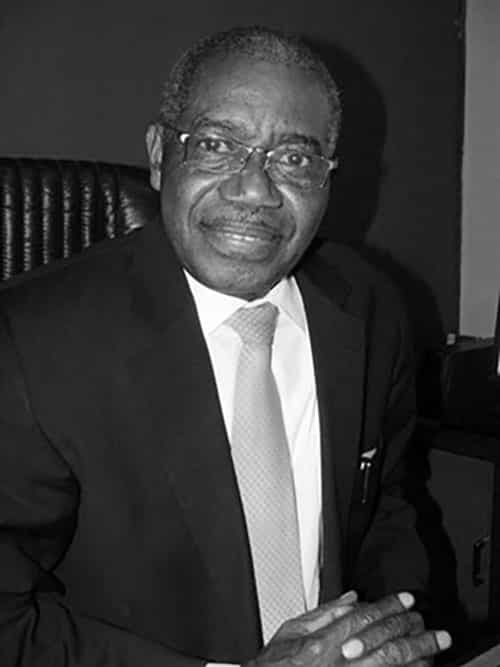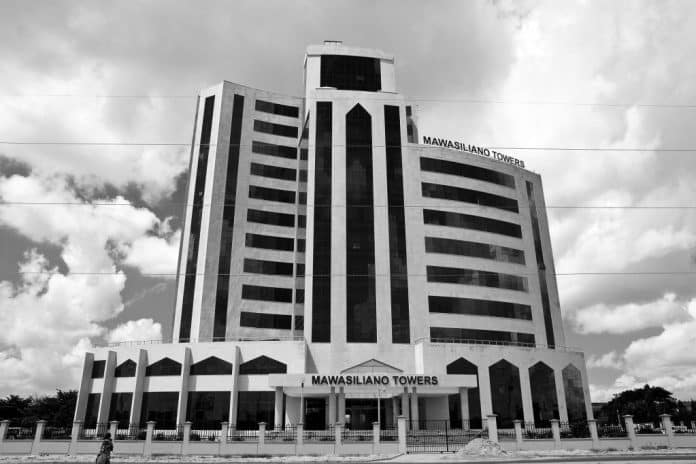Critical Insight: Tanzania Communications Regulatory Authority TCRA
The communications regulatory authority of Tanzania is an autonomous body for the electronic, postal, and broadcasting communications industries established by the Tanzania Communications Regulatory Authority (TCRA Tanzania) Act Number 12, 2003, in Tanzania. It combined the defunct Tanzania Broadcasting Commission (TBC) and Tanzania Communications Commission (TCC). The ministry of technology and communications regulates the activities of TCRA.
The reform in Tanzania’s ICT industry is remarkable where development was brought about by technological, regional, and national political factors. The country is among the few countries in Africa to free up the broadcasting sector where operators can offer various services without acquiring a license for each as an essential strategy, for communications regulations in Tanzania. From its formation in 2003, various regulations have been issued by TCRA for the sector, despite still facing various hindrances including getting services to less-serviced village areas.
Obligation and Functions of TCRA Tanzania
TCRA Tanzania is obliged to regularize the electronic communications, broadcasting, and postal industries in Tanzania including:
- promoting economic efficiency and effective competition;
- issuing licenses and enforcing licensing standards for broadcasting, postal operators and telecommunications in Tanzania;
- promoting access to regulated services
- creating standards for goods and services under the regulation;
- protecting consumers’ interests;
- controlling the audio frequency range;
- controlling charges (tariffs) and rates; and
- supervising the functioning of sectors under the regulation.
TCRA Tanzania was formed by the Act, 2003. Universal Communications Service Access Act (USCA), 2006 is the primary legislation governing industries under TCRA regulation.
Tanzania TCRA Policies that influence TCRA’s functioning include:
- National Postal Policy, 2003
- National ICT Policy, 2003
TCRA Tanzania Issues Regulations That Include:

- service quality regulation
- regulations regarding consumer protection
- postal regulations
- regulations regarding communications licensing
- broadcasting content regulations
- maintenance and installation regulations
- broadband services regulations
- interconnection regulations
- distribution and importation regulations
- electronic address and telecommunication numbering regulations
- regulations regarding frequency spectrum and radio communications
- kind of approval for electronic communications equipment regulations
- communications tariffs regulations
- regulations regarding access to communication and facilities
Sector Controller and Industry Background
The following background includes regional and nationwide sector changes including the formation of the controller for the sector.
|
1927 |
Tanganyika united with Uganda and Kenya to form the customs association. |
|
1933 |
The East African post and telegraph company was created from the merger of previously independent telephone, postal, and telegraph facilities in Uganda, Kenya, and Tanganyika. |
|
1948–1961 |
The EA high commission was formed as a result of increased cooperation. |
|
1951 |
Voice of Dar es Salaam radio station was created. |
|
1955 |
Powerful transmitters were introduced by the colonial government of Britain that covered other regions beyond city. At that moment, Tanganyika Broadcasting Services (TBS) was the new name for the radio station recommended by the colonialist government. |
|
1956 |
Tanzania Broadcasting Corporation (TBC) was the new name adapted to replace TBS. |
|
1961–1967 |
There was the establishment of the EA Common Services body. |
|
1965 |
Radio Tanganyika Dar es Salaam (RTD) was the new name to replace TBC after the National Assembly enacted a bill |
|
1967 |
The EA Community (EAC) was established. |
|
1968 |
The EA Common Services body changed from an organization to a corporation to match its commercial nature. |
|
1977 |
Partner countries had different political activities leading to a halt of cooperation in East Africa. Every member country had to set up its own organization for telegraph, postal, and telecommunications services. |
|
1978 |
Tanzania Posts and Telecommunications Company (TPTC) was established. |
|
1993 |
Tanzania begins the liberalization process of the telecommunications sector. Splitting of TPTC led to the creation of three separate three different entities, including a broadcasting commission (TBC), posts corporation, and the telecommunications company (TTCL). The TCC was established as the regulator with two operators, including one to manage telecoms services and the other for postal services There was the introduction of the communications act in1993 to regulate the sector (apart from broadcasting). |
|
1994 |
Official commencement of TTCL’s operations. |
|
1999 |
A Mikocheni based national television; TvT was established by the government. |
|
1999 |
Vodacom in partnership with Planetel Communication Limited, a Tanzanian company, was given green light to operate the country’s second GSM mobile network |
|
2002 |
Merging TvT with RTD led to the formation of TBS or Taasisi ya Utangazaji Tanganyika (TuT) in Kiswahili, a corporate board |
|
2003 |
In 2003, TCRA was established by the TCRA’s new Act after merging the TBC and TCC. |
|
2004 |
Implementation of the merger in 2004, however with TvT and RTD including keeping their names. |
Functions and Structure
TCRA Tanzania’s Duties
Section 5 in the TCRA Act Number.12, 2003 stipulates the duties of the TCRA:
(a) Promotion of economic efficiency and effective competition;
(b) Promotion of consumer access to regulated services such as rural, disadvantaged, and low-income consumers;
(c) Protection of the financial feasibility of reliable suppliers;
(d) Protection of consumer’s interest;
(e) Enhancement of public understanding, knowledge, and awareness of the sectors under regulation including –
- Consumers’ and regulated suppliers’ rights and obligations;
- Ways of initiating and resolving complaints and disputes;
- The authority’s functions, duties, and activities.
(f) Considering the importance of environmental preservation and protection.
Responsibilities
Section 6 subsection 1 of TCRA Act Number.12, 2003 stipulates the functions of TCRA Tanzania.
(a) To execute the functions bestowed on it by legislation according to the sector;
(b) Depending on legislation according to the sector –
- issuance, renewal, and cancellation of licenses;
- regulation of rates and charges;
- establishment of standards regarding the limitations for supplying the goods and services under the regulation;
- establishment of standards for goods and services under the regulation;
- making rules regarding executing the intentions and terms of the Act including legislation by sector;
(c) Monitoring how sectors under the regulation are performing relating to –
- Standards, quality, and availability services;
- Investment levels;
- Service cost;
- Services distribution and production efficiency; and
- Anything of relevance to the Authority.
(d) Facilitation of dissatisfaction and disputes resolution;
(e) Take over as well as the continued undertaking of the functions of the former TBC and TCC.
Members on the Board

TCRA Tanzania was established by Section 7 subsection 2 of the TCRA Act Number 12 giving the president of Tanzania power to appoint the board chairperson and vice-chairperson of TCRA.
According to the stipulations of Clause 2 (2) regarding the initial program for the TCRA Act Number. 12 of 2003, the appointment of the other TCRA Tanzania board members is the responsibility of the Minister in charge of science, technology, and communications, following approval by the nominating board, as well as a fierce selection process according to Section 13 subsection 6 of the TCRA Act.
Following these appointments, as well as complying with the stipulations of Section 7 subsection 1 of the TCRA Act Number 12, 2003, the 7 board members include the following:
- Chairman – Buxton Chipeta
- Vice-Chairman – Suleiman J. Omar
Members
- John S. Nkoma
- Vuai Iddi Lila
- Baruany E.A.T Luhanga
- Justinian Anatory
- Peter J. Serukamba
Departments
The 5 Departments for the authority to perform its duties include:-
- Office of the director-general
- Postal affairs department
- Industry and consumer affairs department
- Broadcasting affairs department
- Department of managing corporate resources
- Information and communications technologies department
Controversies and Highlights
Tanzania has had very unreliable communications back in the day. Only urban areas usually have access to cellular telephone services, although efforts to avail coverage nationwide are currently going on. There’s a likelihood of Tanzania’s telecommunication sector becoming more competitive with the licensing of 4 other mobile service providers by the regulatory authority to make the number of service providers reach 10.
TCRA Tanzania has offered 5 more mobile network companies operating licenses for the total number of service providers reach to 12. The country today is known in the world for having the highest licenses compared to the potential customers’ ratio, despite the level of population penetration at 43 %, new market entrants have high chances of growing.
These 5 new entrants include Rural Netco, MyCell, Smile, ExcellentCom, and Egotel. According to the Citizen Newspaper, John Nkoma, TCRA’s director-general said that the new market entrants awaited getting network licenses to enter the communication industry in Tanzania.
TCRA Other Responsibilities
Tanzania Postal Code TCRA Implementation
Tanzania zip code TCRA function involves running a program of postcodes in Tanzania and creation of physical addresses. TCRA has set up and manage a system of National Postcode to allow Tanzanians identify various places using postcodes for economical and social purposes.
For more related articles on Manufacturing and Business in Tanzania (Trade) click here!


































